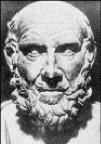- Revenue Cycle Management
- COVID-19
- Reimbursement
- Diabetes Awareness Month
- Risk Management
- Patient Retention
- Staffing
- Medical Economics® 100th Anniversary
- Coding and documentation
- Business of Endocrinology
- Telehealth
- Physicians Financial News
- Cybersecurity
- Cardiovascular Clinical Consult
- Locum Tenens, brought to you by LocumLife®
- Weight Management
- Business of Women's Health
- Practice Efficiency
- Finance and Wealth
- EHRs
- Remote Patient Monitoring
- Sponsored Webinars
- Medical Technology
- Billing and collections
- Acute Pain Management
- Exclusive Content
- Value-based Care
- Business of Pediatrics
- Concierge Medicine 2.0 by Castle Connolly Private Health Partners
- Practice Growth
- Concierge Medicine
- Business of Cardiology
- Implementing the Topcon Ocular Telehealth Platform
- Malpractice
- Influenza
- Sexual Health
- Chronic Conditions
- Technology
- Legal and Policy
- Money
- Opinion
- Vaccines
- Practice Management
- Patient Relations
- Careers
Retake your Hippocratic Oath
What better time than January of a new year (and a new decade, century, and millennium if youre inclined to think that way) to rededicate yourself to a common and noble purpose?
Memo From the Editor
Retake your Hippocratic oath
What better time than January of a new year (and a newdecade, century, and millennium if you're inclined to think that way) torededicate yourself to a common and noble purpose?

In the medical profession, the oldies are still the goodies, and nothingis quite so old or good as the Hippocratic oath (circa 400 BC).
The responses you provided to our millennium fax poll of a few monthsagoabout the future of medicine, and the future of your own careerswerethoughtful and wise. Above all, they made me think that the medical professionis seeking to rediscover rather than reinvent itself. In short, many ofyou expressed a desire to return to the principles that brought you intomedicine in the first place.
With that in mind, we invite you to "re-up" with the oath oncemoreby signing on the line below.
We fully understand that things are not easy these days, and that manypractical obstacles threaten to drag down the high-minded spirit of theoath. In fact, at least one medical school has rewritten the oath, to reflectthe economic pressures today's doctors face. Check out the Tulane versionof this new physician-patient covenant in this issue. (See "Now what? 7 tasks for a new beginning")
Whichever version of the oath you favor, I applaud your dedication tocompetent, conscientious, compassionate patient care. A thousand years fromnow, the principle will be as sacred as it is today, as sacred as it wasin ancient Greece.
Clip and save the oath below, if you'd like. And if you don't mind, pleasesend a copy to me, along with any thoughts and suggestions you have as tohow we can best be of service to you in the years ahead. Thatis a covenant we promise to honor.
Return to:
Jeff Forster, Editor
Medical Economics
5 Paragon Drive
Montvale, NJ 07645
Fax 201-722-2688
jeff.forster@medec.com

The Hippocratic oath
I swear by Apollo the physician, by Aesculapius, Hygeia, and Panacea,and I take to witness all the gods, all the goddesses, to keep accordingto my ability and my judgment the following oath:
To consider dear to me as my parents him who taught me this art; to livein common with him and if necessary to share my goods with him; to lookupon his children as my own brothers, to teach them this art if they sodesire without fee or written promise; to impart to my sons and the sonsof the master who taught me and the disciples who have enrolled themselvesand have agreed to the rules of the profession, but to these alone, theprecepts and the instruction. I will prescribe regimen for the good of mypatients according to my ability and my judgment and never do harm to anyone.To please no one will I prescribe a deadly drug, nor give advice which maycause his death. Nor will I give a woman a pessary to procure abortion.But I will preserve the purity of my life and my art. I will not cut forstone, even for patients in whom the disease is manifest; I will leave thisoperation to be performed by practitioners (specialists in this art). Inevery house where I come I will enter only for the good of my patients,keeping myself far from all intentional ill-doing and all seduction, andespecially from the pleasures of love with women or with men, be they freeor slaves. All that may come to my knowledge in the exercise of my professionor outside of my profession or in daily commerce with men, which ought notto be spread abroad, I will keep secret and will never reveal. If I keepthis oath faithfully, may I enjoy my life and practice my art, respectedby all men and in all times; but if I swerve from it or violate it, maythe reverse be my lot.
(your signature)
Jeff Forster. Retake your Hippocratic Oath.
Medical Economics
2000;1:4.
